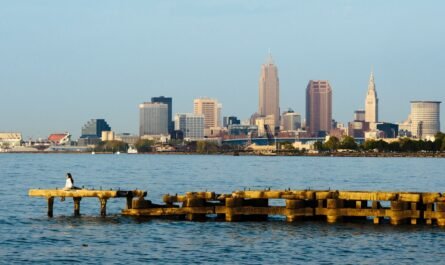Mr. Yonamine — who has a certain renown because his uncle Wally Yonamine was a famous athlete — is a figure in local sports. In 2018, one year after he was named varsity baseball coach at Pearl City High School, state lawmakers, some of whom received campaign contributions from his parties, approved $3 million in funding to convert the field from grass to artificial turf.
As Mr. Yonamine spoke from the refurbished field at an opening ceremony in 2022, a Hawaiian priest sprinkled rainwater on home plate.
“Thank you to all who helped make our dreams come true,” Mr. Yonamine said.
This article was reported in partnership with Big Local News at Stanford University.
How the Numbers Were Calculated
The Times and Civil Beat examined hundreds of thousands of campaign contributions and more than 70,000 state contracts to draw connections between vendors and their donations to political races. The analysis revealed that nearly 20 percent of all campaign contributions since 2006 have come from people tied to companies doing business with the state and local governments.
This number is likely an underestimate because the data is incomplete. Records were obtained from the Hawaii Awards & Notices Data System, which tracks who won state contracts, but a 2021 audit found that only 40 percent of all state contracts awarded that year were posted. It’s not clear if the problem applies to other years.
Reporters requested and reviewed check registers to verify the total payments to vendors from departments. Some departments did not respond to public records requests, including those with large numbers of high-value contracts, such as the Education and Transportation Departments.
The gaps in state and county contracting data and check registers made it difficult to determine just how much money vendors actually received. Published amounts were confirmed with source documents or contracting departments.
Contractors were matched against the names of companies, their executives and employees in a database of campaign contributions maintained by the Hawaii Campaign Spending Commission. Donations from spouses and relatives of contractor executives were also included in the count when possible. Spouses and relatives were determined based on people who shared the same last name and address as the main contributor. In some cases spouses were jointly listed as contributors.
The analysis focused on vendors who provide legal, consulting, engineering and construction services. Contracts and contributions for subsidiaries were attributed to their parent companies. Universities and other public agencies with government contracts were excluded from the analysis. Organizations that may have other lobbying interests — such as the Hawaii Association of Realtors — were also excluded.
Contributions made at events hosted by Mr. Yonamine were identified by searching for all contributions made to participating candidates within one week of the parties. The Hawaii Campaign Spending Commission requires that contributions be deposited within seven days of receipt.



